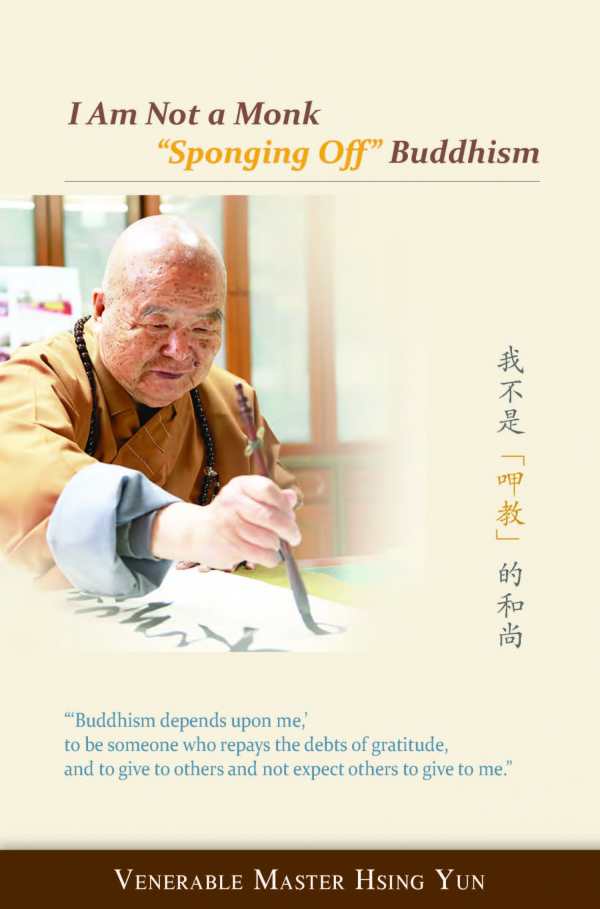
I am Not a Monk "Sponging Off" Buddhism
Sharing enduring wisdom for the ages, I am Not a Monk “Sponging Off“ Buddhism is a ruminative, insightful spiritual leader’s memoir.
Hsing Yun’s memoir and religious guide I am Not a Monk “Sponging Off“ Buddhism reflects on humanistic Buddhism and a lifetime spent promoting it.
This curated essay collection gathers some of Hsing Yun’s writings from among his more expansive complete works, picking out entries that focus on his personal experiences teaching Buddhism, after having been raised in poverty in a war torn village. Its accounts of witnessing wild dogs eating corpses, and of Japanese soldiers shoving his grandmother into a canal, are affecting.
Hsing Yun reckons with himself throughout his recollections, as when he chastises himself for being dismissive of his maternal grandmother’s old fashioned beliefs: “several years later [I] shockingly realized [my] ignorance and cruelty” after being taught “morality, loving-kindness, and compassion.” Now revered as a leading teacher of humanistic Buddhism, Hsing Yun went on to establish one of the country’s largest Buddhist organizations; he is credited with reaching innumerable people across the world, aiming to “transform my limited human life into one that is equivalent to three hundred years.”
Though the book’s discursive, ranging essays alternate between personal memories and spiritual lessons, even its memoir portions dispense wisdom: there are entries that convey the teachings of the Fo Guang Shan Monastery in Taiwan, for example. Hsing Yun also discusses his self-reliance, emphasizing that he has not “made a living off Buddhism,” even as he wrote, taught, fed people in need, and founded temples, schools, and orphanages. His story becomes a model of self-respect and similar virtues, all discussed in uplifting terms. It seeks to teach others to be collaborative and compassionate, too, encouraging them to have faith in themselves as beings who can be perfected; such encouragements are complemented by the book’s explanations of Buddhist teachings on empathy and responding to kindness. A smattering of prayers, verses, and lyrics are present to reinforce these messages.
Colorful photographs illustrate the work, bringing to life settings like Hsing Yun’s home, the monastery that he built, institutions that he started, and publications that he ran. A sweeping image of the Yixing Dajue Temple is shared, too, alongside several examples of Hsing Yun’s elegant calligraphy. These juxtapose well with the text’s illuminating lecture on enlightenment, transcendence, and other tenets of Humanistic Buddhism, which comes later in the book and clarifies much of its earlier spiritual guidance. With a postscript that revisits Hsing Yun’s roots, elucidating how his home, family, and upbringing informed and guided him, this is a satisfying memoir that circles back on itself to reveal the gratification that comes from the propagation of Buddhist precepts.
Ruminative and insightful, the memoir and spiritual guide I am Not a Monk “Sponging Off“ Buddhism considers a life spent following and spreading Buddhist principles.
Reviewed by
Joseph S. Pete
Disclosure: This article is not an endorsement, but a review. The publisher of this book provided free copies of the book and paid a small fee to have their book reviewed by a professional reviewer. Foreword Reviews and Clarion Reviews make no guarantee that the publisher will receive a positive review. Foreword Magazine, Inc. is disclosing this in accordance with the Federal Trade Commission’s 16 CFR, Part 255.
